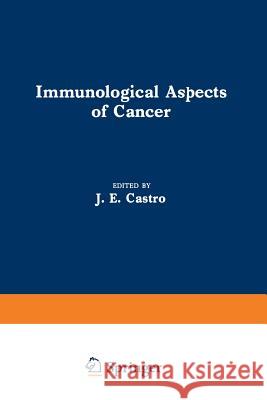Immunological Aspects of Cancer » książka
Immunological Aspects of Cancer
ISBN-13: 9789401094207 / Angielski / Miękka / 2012 / 477 str.
An immunological approach to the treatment of cancer has many theoretical features to commend it. There should be specificity, so that tumour cells alone are destroyed whilst normal tissues are unaffected. Provided the tumour is uni form and all of the cells have appropriate antigens, every malignant cell should be destroyed and even distant metastases dealt with. So far these speculative advantages are unfulfilled and the initial optimism that surrounded im munotherapy has not been sustained. Acceptance of the precepts of tumour im munology continues but these disappointing observations had led to increasing scrutiny of certain aspects. The purpose of this chapter is to review the prin ciples which underly tumour immunology and immunotherapy, so that the more detailed studies that follow can be considered in perspective. TUMOUR ANTIGENS (Chapter 2) For a tumour to initiate an immunological response, it must possess distinctive antigens. Much of the early work in tumour immunity was confused because it was not appreciated that tumours, like other tissues, exhibit transplan tation antigens. Only when syngeneic tumours are used can tumour antigens alone be studied and it was the introduction of inbred mouse strains which allowed Foley in 1953' to produce the first evidence for specific an tigenicity of experimental tumours. Demonstration of these antigens requires that pretreatment with syngeneic tumour will influence the growth of a sub sequent challenge with the same neoplastic cells."











